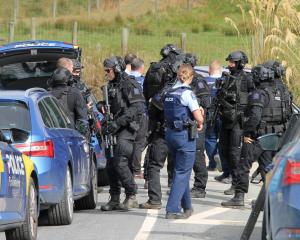
It is not quite mission impossible, but The Opportunities Party (Top) leader Raf Manji is endeavouring to do what few have achieved in recent political history — bring a new political party into Parliament. The first MMP election, in 1996, resulted in seats being won by the usual suspects — Labour and National — as well as Act New Zealand, New Zealand First, and the Greens as part of the Alliance.
Fast forward to this year and the only other party to have broken into Parliament at an election — discounting parties formed by rogue MPs during a term of Parliament — is Te Pati Maori.
Top, founded in 2016, recorded a respectable 2.4% of the party vote in its first election a year later but in 2020, like almost every party, found its share of the vote squashed by Labour’s landslide win.
However, several factors give Top real hope this year.
There are plenty of undecided voters up for grabs who Top hopes will find the party’s centrist mix of ecology and economics appealing, and it also has a proven template in the Teal independents movement in Australia which demonstrates such candidates are electable.
Most importantly, Top has its leader Raf Manji.
The former Christchurch city councillor stood as an independent in Ilam in 2017 and came an impressive second behind then incumbent MP Gerry Brownlee.
Having sat out 2020, Mr Manji is back for more this year, having assumed the leadership of and stabilised Top.
With Ilam now a marginal Labour seat — and Mr Manji having beaten Labour in the seat before — he harbours high hopes a split vote between the major parties will get him elected.
"This election is the best chance we have to get in, with me in Ilam.
"The 5% threshold is extremely high, everybody knows that, and you need a significant national campaign to clear it, or a particular political constituency," Mr Manji said.
"Almost everyone who has tried it has failed, but my sole focus is trying to win Ilam — it is also about being practical in terms of our resources ... more broadly, we need to convince people that we will do well in Ilam so a vote for us is not a wasted vote."
Top’s manifesto, unsurprisingly, is therefore very focused on Christchurch, and includes a specific $1billion investment package plan for the city.
That features a South Island cancer centre and laboratory, shifting to a zero-emission urban bus fleet, 150 new community constables and a new South Island police training college.
Christchurch has historically been under-invested in, Mr Manji said, and he predicted what was good for his city would be good for the rest of the South.
"My focus is the South Island: I want a regional approach and decentralisation out of Wellington.
"We support the Southerner rail route for example, and people think it’s pie in the sky but that whole eastern seaboard between Christchurch and Dunedin has so much potential and we haven’t even begun to tap into that.
"Christchurch is the beginning, and if we can get three or four MPs in then suddenly the South Island is on the map."
And in more potential good news for Dunedin, should Mr Manji be elected there is every chance he could bring into the House with him the candidate ranked third on Top’s party list, its Dunedin candidate Ben Peters.
"If we can get me and Ben in you will have two MPs talking about the South Island the entire time and that hasn’t really happened before.
"The big parties, the top-flight people make the decisions and they focus on Wellington and Auckland and not so much the South Island."
Mr Manji is a small-state proponent who has little time for centralisation: health reforms, vocational training reforms, three waters reforms and the scrapped media merger are all decried as "train wrecks" which could have been avoided with proper central government funding.
"We want good public services.
"We want everyone to go to the doctor and get a good education etc, but government does way too much," he said.
"It should flex its muscles when it has to, but it needs to have the right regulatory framework to support a more innovative and prosperous economy."
■Tomorrow. New Zealand First leader Winston Peters.
Raf Manji on:
The climate election: "I think 2026 is going to be the climate election. I think we need another three years of people seeing the impact of climate change before they really start to shift their thinking. In Australia they shifted sooner
because of the impact of fires and flooding."
Top: "It is hard to build awareness, that takes a lot of time. Our awareness numbers are still not particularly high, but when people know about us we do well."
Cancer care: "We need to build Christchurch and Dunedin up to become the two main treatment centres and for them to work together, not in isolation ... centralisation in Wellington won’t help the South at all."
Tax: "Our proposal is very similar to Australia, our top tax rates are in line with theirs. We want to rebalance the relationship between incomes and house prices."












